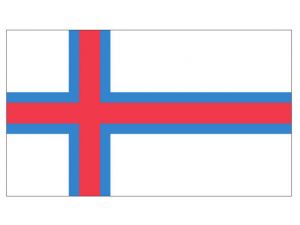Difference between revisions of "Language/Faroese/Grammar/Negation"
m (Quick edit) |
|||
| Line 59: | Line 59: | ||
<span class='maj'></span> | <span class='maj'></span> | ||
{{#seo: | {{#seo: | ||
| Line 69: | Line 67: | ||
<hr>➡ If you have any questions, please ask them in the comments section below.<br>➡ Feel free to edit this wiki page if you think it can be improved. 😎 | <hr>➡ If you have any questions, please ask them in the comments section below.<br>➡ Feel free to edit this wiki page if you think it can be improved. 😎 | ||
==Sources== | |||
* [http://www.lel.ed.ac.uk/~heycock/faroese-project/scheme.html Verb movement in Faroese] | |||
==Other Lessons== | ==Other Lessons== | ||
Revision as of 13:54, 1 April 2023
Hi Faroese learners! 😊
In this lesson, we will learn about negation in Faroese. We will explore how to express negation, how to use negative pronouns, and how to form negative sentences.
Take a moment to explore these relevant pages as you conclude this lesson: Adjectives, Questions, Plurals & Future Tense.
Expressing Negation
In Faroese, negation is expressed using the word "ikkje" or "ikki." These words can be used interchangeably and both mean "not." "Ikkje" is more common in writing, while "ikki" is more common in speech.
- Example:
| Faroese | Pronunciation | English |
|---|---|---|
| Eg et ikkje fisk. | [ɛiː ɛt ɪtʃə] | I do not eat fish. |
Negative Pronouns
There are two negative pronouns in Faroese: "hvønn/hvør" (which) and "sum ikke" (who/whom/but not). Both of these pronouns are used to negate and say something is not the case.
- Example:
| Faroese | Pronunciation | English |
|---|---|---|
| Hvør bókini lesti tú ikki? | [kwœʀ ˈpœʰɪnɪ ˈlɛstɪ ˈtʉ ɪtʃi] | Which book did you not read? |
Forming Negative Sentences
To form a negative sentence in Faroese, you add "ikkje" or "ikki" after the verb. If the verb is irregular, change the word order so that the verb comes last.
- Example:
| Faroese | Pronunciation | English |
|---|---|---|
| Hann køpur ikki bilin. | [han ˈtʃøpʉɹ ɪtʃɪ ˈbilɪn] | He does not buy the car. |
| Íbúgvarnir eru ikki tómstir. | [ʊiːˈpuɡvɛɹnɪɹ æɹʊ ɪtʃɪ ˈtɔmstɪɹ] | The residents are not empty. |
You can also use negative pronouns to form negative sentences. In this case, you simply place the negative pronoun at the beginning of the sentence.
- Example:
| Faroese | Pronunciation | English |
|---|---|---|
| Sum ikke fari, so verður einki gjørt. | [sum ɪtʃɪ ˈfaɹɪsʊ ʃɔ væɹðʊɹ ˈeiːncɪ ˈɡjœɹt] | Who doesn't go, nothing is done. |
Practice Dialogue
- Person 1: Har tú ikki lært at tala føroyskt enn? ([Haven't you learned to speak Faroese yet?])
- Person 2: Jú, eg havi lært at tala føroyskt, men eg les ikki so væl. ([Yes, I have learned to speak Faroese, but I don't read it very well.])
Further Resources
To learn more about Faroese Grammar, check out the Find native speakers and ask them any questions! You can also refer to the following Wikipedia pages:
➡ If you have any questions, please ask them in the comments section below.
➡ Feel free to edit this wiki page if you think it can be improved. 😎
